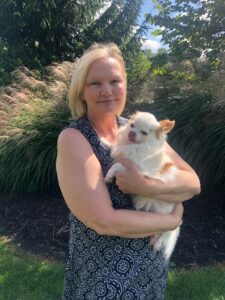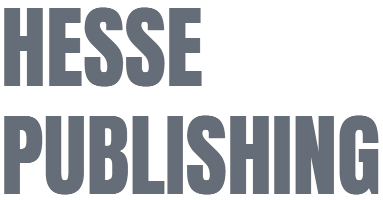
Interview with Elisabeth Hesse
What inspired you to write this story?
The inspiration for this book stems from a collection of memories I have from my maternal grandmother’s haunting stories of the Holocaust and my family’s role during WWII. These stories created a restlessness in my heart for the meaning of human suffering, especially the suffering of those most vulnerable, our children. I think about these children often, and I don’t want them ever to be forgotten.
I believe we all struggle to understand human suffering. The Holocaust called into question the very existence of God. And if he exists, is he testing us? For what purpose? To teach us lessons about good and evil, to build character? And, when we finally reach eternal harmony, will it all be justified?
There are no reasonable answers to the question of why a presumably all-powerful and good God allows suffering, especially of the most innocent and vulnerable, and does nothing to intervene.
There are numerous philosophies and religions that have tried to make sense of this immense tragedy; however, I feel everyone will find the answer based on their own belief system.
Regardless, we all have an unenviable decision to make: To have faith or not to have faith, to believe or not to believe.
Did your research have any emotional impact on you?
I am troubled by the things humans can do to each other. The tearing apart of entire families is so heartbreaking. It is inconceivable to me to think of any child having to face evil alone.
Even though Final Refuge is a story of cruelty and suffering, it is also a story that brings hope and peace, along with the belief we are never alone when we die.
I want to believe there must have been some human decency among all the evil, even among the Germans.
If your book were a song, what song would it be?
Say Something by Christina Aguilera and A Great Big World. This powerful song can have different interpretations. When I hear this song, I think of Final Refuge as a desperate call to God, “Hey, we’re hurting down here, say something…show me a sign that you care before I completely give up on you.” I know God didn’t create the Holocaust, but he allowed it to happen. The Jewish people must have felt so betrayed by His silence.
In my mind, I hear this song playing when Elsa returns home. Trix senses something in the air in anticipation of something unseen and frantically races down the tracks, anxious to greet the mysterious man. When she reaches him, there is an intense joy between them.
This is where Elsa experiences seeing Willy and Anna walking together with the mysterious man. Even though this event cannot be explained logically, something awakens in Elsa and replenishes her faith. She connects with a divine power, a higher power, God, or whatever one wants to call it. It is a moment where she discovers and receives personal proof that there is a beautiful afterlife, and she begins to heal.
What does the title Final Refuge mean?
To me, it means the opposite of the Final Solution, an organized Nazi policy of the extermination of all European Jews during WWII. Final Refuge is the place I believe is our final resting place. Our true home where we are with God. Heaven.
What do you hope to project to the reader through your story?
That there may be something out there beyond our struggles here on earth. That if we open our minds and hearts and ask ourselves, ‘but…what if it’s true?’ there might be another spiritual realm out there such as a god, whatever that might mean to them, and to have faith in its existence.
Did real people and real events inspire the characters and scenes?
My maternal grandfather was part of the resistance in Arnhem, the Netherlands. Some of his best friends were Jewish. He and his compatriots planned on sabotaging the railroad tracks near his home, where he heard the heartbreaking sounds of Jews in the trains that were heading East. My grandmother talked him out of it for fear of reprisals.
I remember my mother telling me about an incident in the city of Velp, Gelderland in the Netherlands where 110 people were randomly selected and lined up along the Apeldoornse weg and gunned down by six German military trucks driving by and shooting them. My grandfather looked among the dead for my Uncle Dick, my mother’s brother, who happened to be at a nearby fishing village purchasing smoked fish on this day.
I had a great uncle, Oom Jan, a Dutch soldier, who died in a concentration camp.
When my brothers and I were little and living in the Netherlands with our grandmother, we had a border collie named Trix.
What do you struggle with?
I struggle with the answers to why there is so much suffering in the world. We may not be able to avoid suffering, but I believe we can choose how to cope with it. No one can stop us from doing what is humane, even if it means losing one’s life.
It bothers me that the prisoners were experiencing the darkest moments of their lives at the hands of the fanatical Nazi regime. It was the ultimate tragedy. What must it have felt like to be powerless, helpless, humiliated, and degraded? Knowing that the world around them did not stop is unimaginable.
Do you believe in God? Did you write this story out of your own belief system?
Yes, I believe in God, and I still question Him about the purpose or reason for suffering, and I believe he welcomes our questioning. I also believe it will be revealed to us someday.
I believe this world is large enough for many faiths and that universal principles apply to all faiths. Everyone has a right to their own belief system. I was raised to believe faith is something very personal and rarely discuss religion with anyone. I consider myself more spiritual than religious. However, I did write this story from a Christian perspective.
Does God speak to us?
I believe He talks to us every day in the natural moments of life, in the mundane actions of our lives. We may not hear Him through an audible voice (or maybe you do); however, he speaks to us through our dreams, visions, thoughts, circumstances, conversations with others, our pets, nature, music, or the stories we read.
What are some of your philosophical thoughts about the subject matter of your book?
No one should ever know that place in hell the Jews experienced during the Holocaust. Peace is knowing that one life, no matter how trivial it seems, touches thousands of others. People in the world today are looking for hope. I believe the joy and love, and peace we feel is when you are following or hearing God’s voice. My favorite Bible verse is Psalms 91:4 He will cover you with his feathers, and under his wings, you will find refuge.
What do you like about writing?
I like weaving words together that will transport the reader to far off places. Writing can be both drudgery and exciting at the same time. It’s hard to explain. I compare it to a runner’s high. It’s like oxygen you can’t see, but it’s there. Yet, I will find all kinds of excuses not to write.
What advice would you give a new writer?
Don’t give up. Keep at it. Write a story no one else can tell the way you can. You can do it. You’re going to make lots of mistakes. You must let go of your insecurities. When you write, you cannot worry about what other people might think. Write that first crappy draft. Start with one sentence, one paragraph, one page, one chapter. Just start somewhere but keep at it no matter how long it takes you. It helps to have a writing coach as talented as the one I have that will inspire you and keep you accountable.
Give us a fun fact about yourself.
My paternal great grandfather was rumored to be a distant cousin of the famous author Herman Hesse.
Did you use an outline?
Yes. An outline helped make my writing more manageable and less overwhelming. It helped me focus on a beginning, a middle, and an end. I used a story structure developed by local author Joe Roper. He was a speaker at a writer’s conference I attended in Grand Rapids, Michigan.
